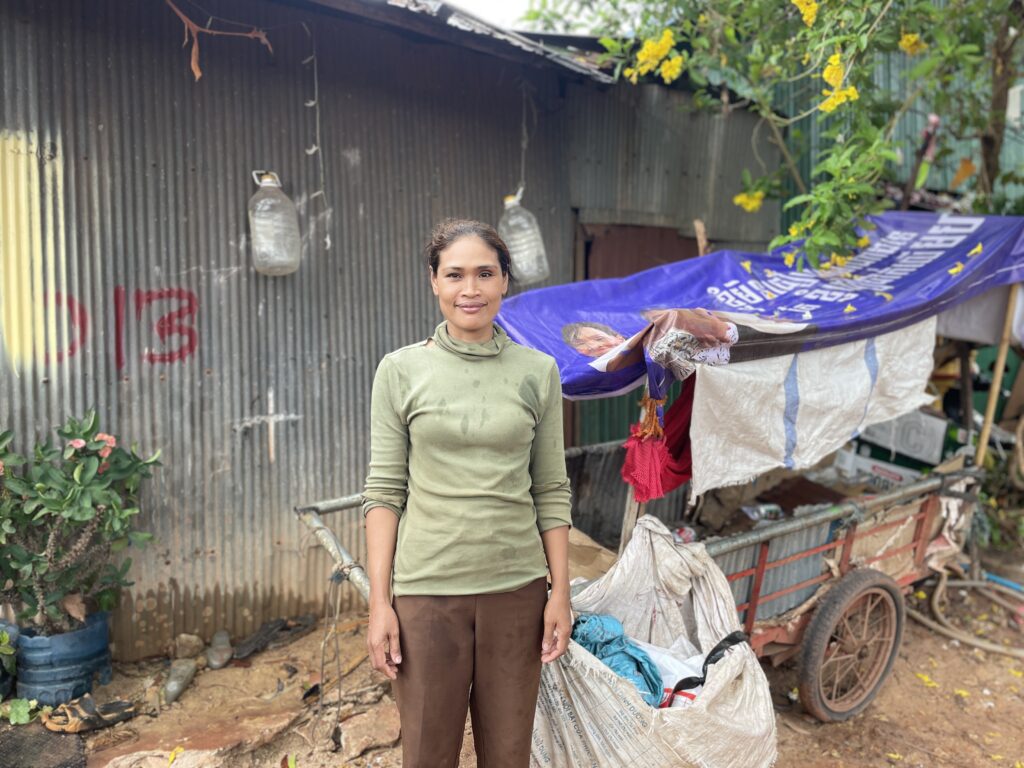In many impoverished households across Cambodia, putting food on the table is a daily challenge.
Malnutrition doesn’t just affect a child’s physical health; it also casts a shadow over their future, pushing families to make difficult choices between sending their children to school or sending them to work.
For many impoverished families, a full bowl of food represents not just sustenance, but a lifeline – it’s a chance to provide their children with a brighter future.
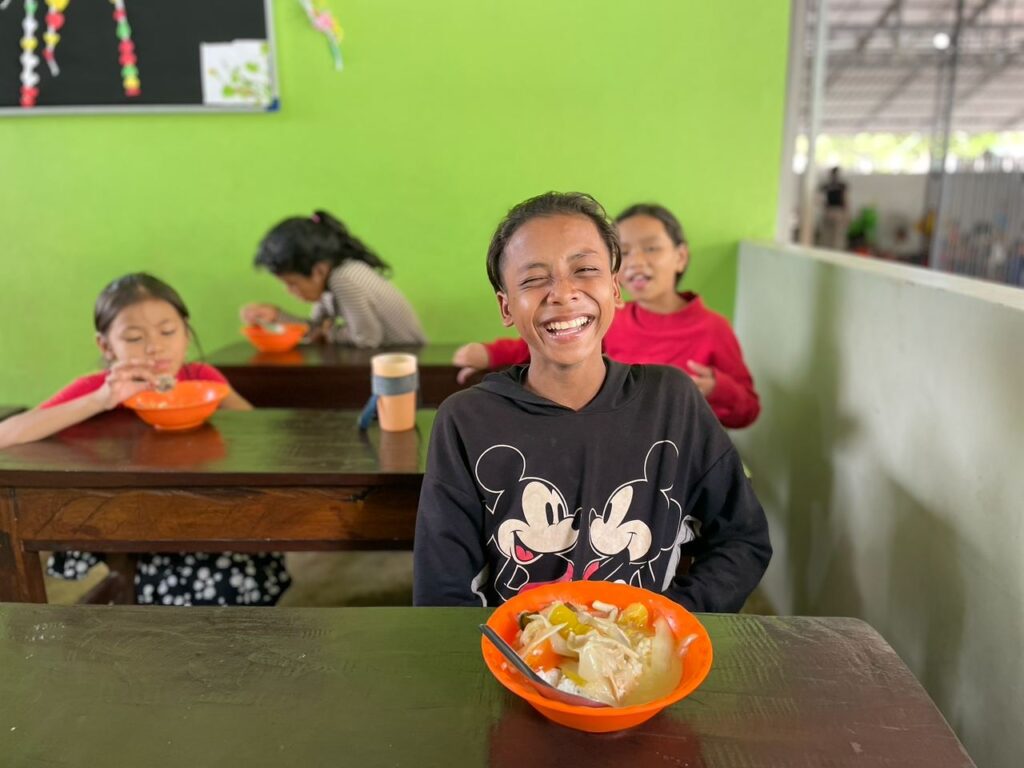
Food time is our kids favourite time at REACH Siem Reap!
Through REACH’s holistic approach, our programs address the root causes of poverty by providing families with the core offerings of nutrition, education, and healthcare. By tackling hunger, REACH aims to disrupt the cycle of poverty and create lasting change in the lives of Cambodian families.
But behind every program lies a story – the story of a family struggling to survive in the face of overwhelming adversity. It’s these stories that serve as a powerful reminder of the urgent need for action.
Meet Sokhon…
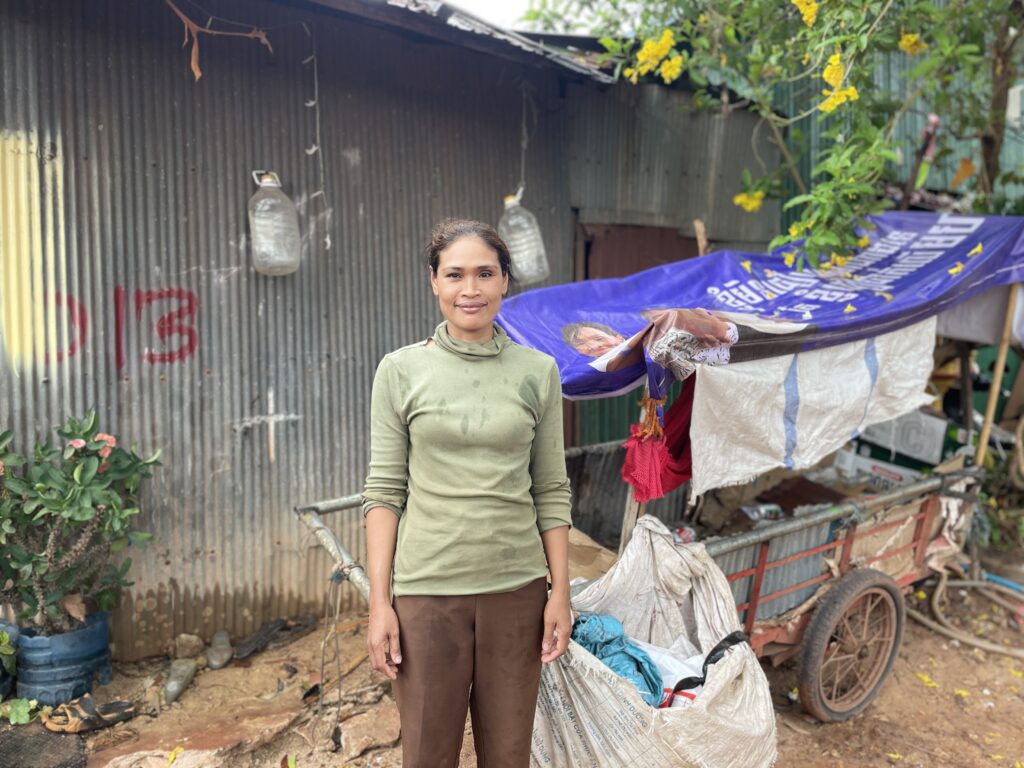
Aged 38, a proud mother of 5 students enrolled at REACH.
Sokhon’s life journey was not easy, but her determination and love for her family has guided her through each challenge. Born into a family of rice farmers, in a neighbouring commune to Siem Reap, her early years were marked by difficulties.
Her parents worked hard to provide food and a home, but money was never enough to sustain the entire family, which is why, Sokhon was sent to work from an early age and never got to attend school.
From an early age, Sokhon was forced to act as an adult to help her family survive. At 8 years old, she worked as a housekeeper for a wealthier family. She used to take care of their pigs and assist with household chores like cleaning, washing their clothes, and even cooking.
Yet, Sokhon’s thirst for knowledge burned brightly, even as a young girl.
When she was 10 years old, she saw other children going to extra classes at public school. She knew the extra classes had an extra cost, which she couldn’t afford, however, her desire to join the other kids and learn led her to take a bold step.
Despite the financial barrier, Sokhon went back home and filled a small bag with rice harvested from the farm, to trade it with the teacher in exchange for letting her join the class.
She remembers these classes fondly, being proud to be in the classroom with her peers.
But sadly, this activity lasted for only a month and at age 10, she had to stop studying, as she needed to get back to work to continue helping her family. When she said her goodbyes to her class, the teacher gave her a book and a notebook so she could continue practising what she had learned.
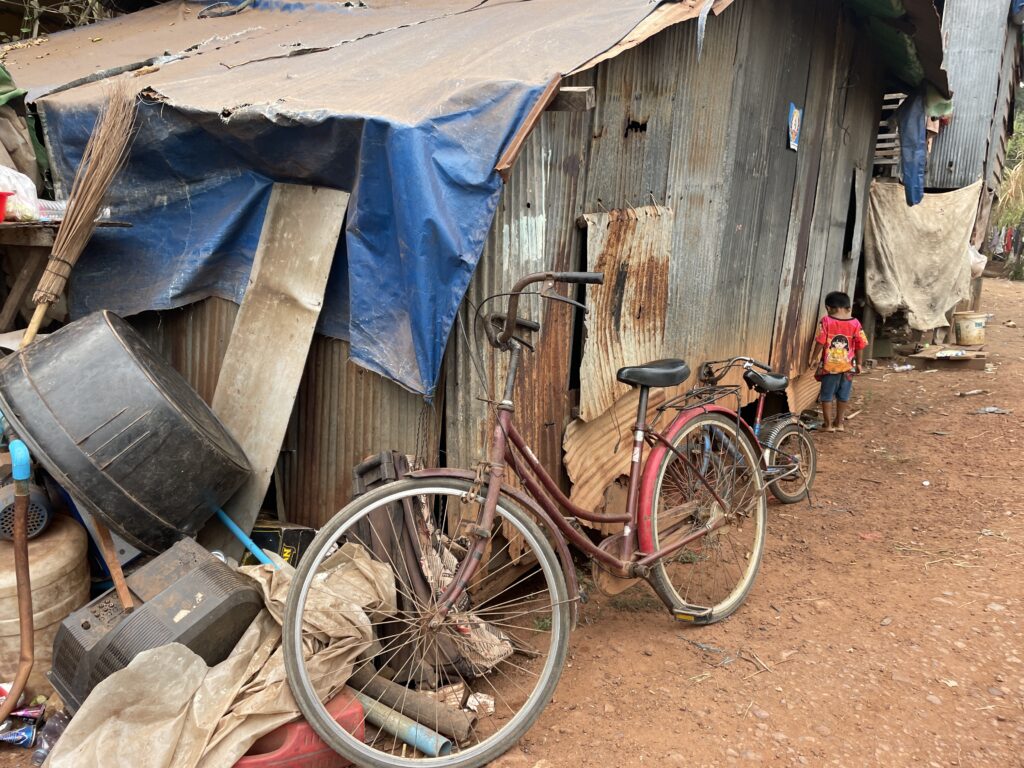
Impoverished children more than often need to work from an early age to help their families survive.
Until this day, she still cherishes the kindness of her teacher, because thanks to that, she could learn how to read and even write her name.
As the years passed by, she worked in different informal roles, like farms, selling vegetables at the markets and laboured on construction sites. Each role was challenging in its own way, but one thing that remained consistent was that work was sporadic, and compensation was never enough.
At age 21, while working as a construction worker, she met her husband. Soon after they got married, they decided to go to a different commune in Siem Reap and try to make a life there. This decision was made shortly after knowing they were expecting their first child.
After years of trying to support themselves by selling fish in the market and with 3 more children to care for, she realized that her children would face the same challenges as her if she didn’t change their situation.
The decision to move back to Siem Reap, driven by the desire for her children to have access to education, was a game changer. It was here that Sokhon’s family were enrolled at REACH 4 years ago, and started receiving education for her children, healthcare and food support.
Still, her journey in breaking out of poverty has just begun.
Veasna*, Sokhon’s eldest son at 16 years old, has been involved in our programs from the start. Despite this longstanding commitment, his path hasn’t been smooth. With both his parents working as rubbish collectors, they struggle to meet the needs of their family of 8, often resorting to borrowing money from neighbours and friends.
Witnessing the stress on his mother’s face and the constant visits from people demanding payment, Veasna took matters into his own hands. Determined to alleviate the financial burden of his family, he made the decision to step up and find work.
In the beginning, Veasna* tried his best to keep up with school while venturing into his new job, working on night-shift as a waiter. However, the long hours in the restaurant made him very tired, making it hard for him to keep up with his school activities.
As a result, in January 2023, he made the heartbreaking decision to drop out of both public school and REACH.
The team at REACH immediately contacted him and the family to prevent any regrettable decisions, but the boy was finally at ease knowing that he was helping his family and finally, having a little bit of money for himself.

One of our social workers during a house visit.
After 6 months, and thanks to the constant support of the Education team at REACH and his mother’s help, Veasna* agreed to stop working and go back to school.
For Sokhon’s family, the impact of REACH extended beyond immediate relief; it instilled hope and resilience in her family.
Having 4 more children enrolled in our program has transformed her life. She goes to work in peace knowing that her children are in a safe place, receiving nutritious food and taking part in educational activities that make them go back home with big smiles on their faces. When she asks them why they always want to go to REACH, the children energetically answer: “Because there’s food, friends and a toilet!”
Sokhon thinks food combats child labour because children don’t have to go out to work to earn money. Before, it broke her heart when her children asked for food, and she didn’t have anything to give to them. It still breaks her heart to see young children begging for food in the markets or in tourist areas, putting themselves in danger just to have a full stomach.
Ongoing access to food for her kids has turned her life around in ways that she couldn’t imagine. She now has hope for the future and will continue motivating her children to attend school, so that in the future, they all can have better lives than the one she had.
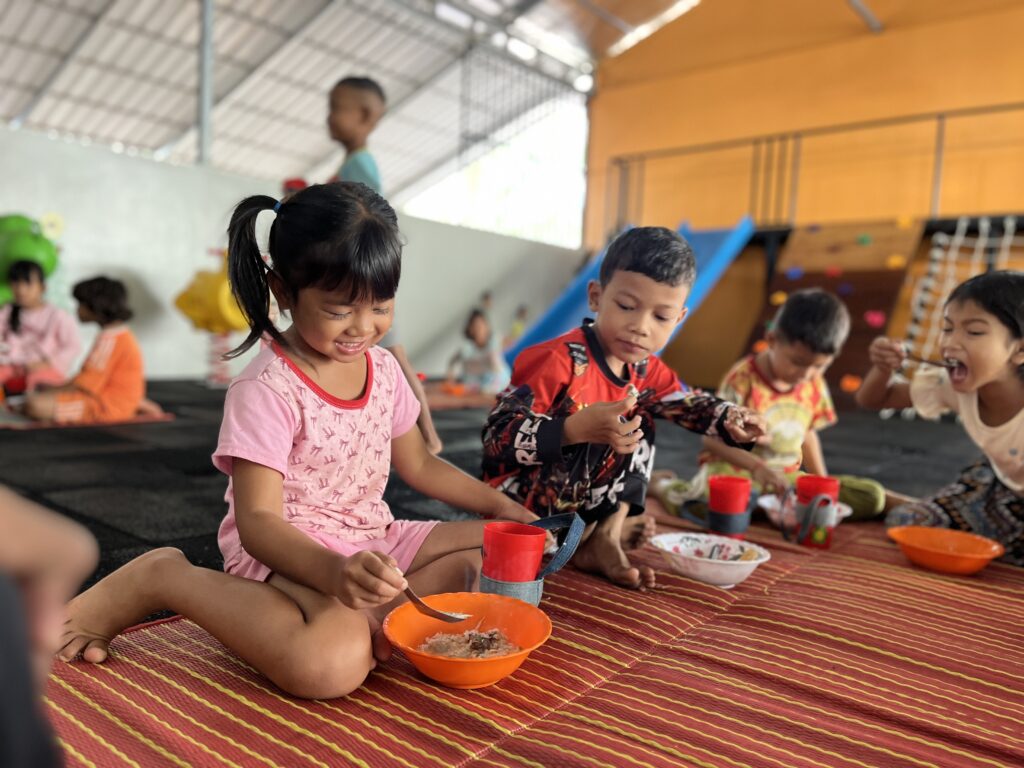
Kindergarteners enjoying their meals.
Sokhon’s case is just one example of the hundreds of cases that impoverished families in Cambodia live through every day. For every child who can attend school with a full stomach, there is hope – hope for a better tomorrow, hope for an end to the cycle of poverty, and hope for a world where every child has the opportunity to fulfil their potential.
With food and education in hand, we can break down barriers, empower communities, and build a future where no child is forced to sacrifice their dreams for the sake of survival.
*For child protection, Veasna’s name has been changed to protect his identity and welfare.

